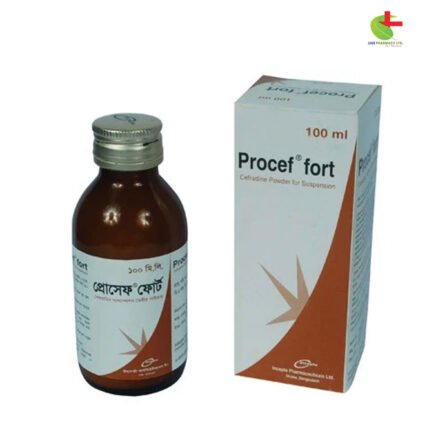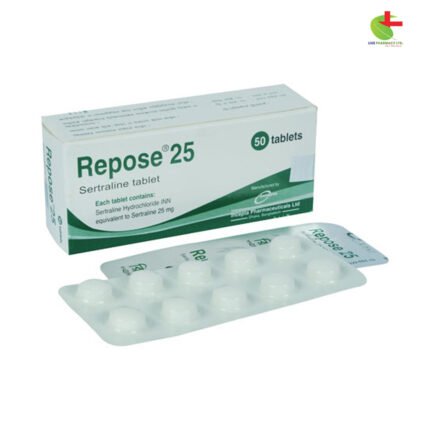Deflazit
200.00৳ Bottle (50ml)
- Deflazit is a potent corticosteroid used for treating a wide range of inflammatory, autoimmune, and allergic conditions.
- It provides effective anti-inflammatory and immunosuppressive action, benefiting patients with asthma, rheumatoid arthritis, lupus, and various skin disorders.
- Deflazit is prescribed for both adults and children, with dose adjustments based on individual needs and clinical response.
- Always use under the guidance of a registered healthcare professional to ensure safe and effective treatment.
 Brand
Brand
|
Incepta Pharmaceuticals Ltd |
|---|---|
 Generics
Generics
|
Deflazacort |
 Type
Type
|
Oral Suspension |
Indications
Deflazit is prescribed for a variety of conditions, including:
- Allergic Reactions & Respiratory Disorders: Anaphylaxis, asthma, and severe hypersensitivity reactions.
- Autoimmune & Inflammatory Diseases: Rheumatoid arthritis, juvenile chronic arthritis, polymyalgia rheumatica, systemic lupus erythematosus, dermatomyositis, mixed connective tissue disease (excluding systemic sclerosis), polyarteritis nodosa, sarcoidosis.
- Skin & Immune Conditions: Pemphigus, bullous pemphigoid, pyoderma gangrenosum.
- Kidney Disorders: Minimal change nephrotic syndrome, acute interstitial nephritis.
- Cardiovascular & Gastrointestinal Conditions: Rheumatic carditis, ulcerative colitis, Crohn’s disease.
- Eye Conditions: Uveitis, optic neuritis.
- Blood Disorders: Autoimmune haemolytic anaemia, idiopathic thrombocytopenic purpura.
- Cancer Treatment: Acute lymphatic leukaemia, malignant lymphoma, multiple myeloma.
- Immune Suppression: For patients undergoing transplantation.
Note: Always consult a registered healthcare professional before use.
Pharmacology
Deflazit works by providing potent anti-inflammatory effects. It inhibits Phospholipase A2, an enzyme responsible for prostaglandin synthesis, reducing inflammation. Additionally, it suppresses the release of key chemicals within the immune system, offering significant immunosuppressive benefits.
Dosage & Administration
For Adults:
- Acute Conditions: Initial doses can reach 120 mg/day. For maintenance, typical doses range from 3-18 mg/day.
- Rheumatoid Arthritis: The typical maintenance dose is 3-18 mg/day, with the smallest effective dose being preferred.
- Bronchial Asthma: For acute attacks, 48-72 mg/day may be required. Once controlled, the dose should be reduced gradually. For chronic asthma, titrate to the lowest effective dose.
- Other Conditions: Dosing is tailored to the patient’s clinical needs, starting at an equivalent of 5 mg prednisone to 6 mg Deflazit.
For Children:
Deflazit’s pediatric dosing is based on age and clinical need, with the typical range between 0.25-1.5 mg/kg/day. Specific guidance includes:
- Juvenile Chronic Arthritis: Maintenance doses of 0.25-1.0 mg/kg/day.
- Nephrotic Syndrome: Initial dose of 1.5 mg/kg/day, then titrated based on clinical response.
- Bronchial Asthma: Initial dose of 0.25-1.0 mg/kg, typically administered on alternate days.
Withdrawal: If Deflazit has been used for more than 3 weeks at doses exceeding physiological levels, gradual dose reduction is essential to prevent disease relapse.
Always follow the advice of a healthcare professional.
Drug Interactions
Deflazit is metabolized in the liver. If co-administered with liver enzyme inducers such as rifampicin, carbamazepine, or phenobarbitone, the dose of Deflazit may need to be increased. Conversely, if combined with liver enzyme inhibitors like ketoconazole, a lower dose may be necessary.
Contraindications
Deflazit should not be used in individuals with hypersensitivity to any of its ingredients or in those receiving live virus immunizations.
Side Effects
Common side effects include:
- Gastrointestinal: Nausea, abdominal discomfort.
- Musculoskeletal: Weakness, muscle pain.
- Endocrine: Hormonal imbalances, weight gain.
- Neuropsychiatric: Mood changes, irritability.
- Ophthalmic: Vision issues.
- Electrolyte Imbalance: Fluid retention, potassium depletion.
- Other: Susceptibility to infections, impaired healing, skin thinning, acne, and thromboembolic disorders.
Pregnancy & Lactation
- Pregnancy: Deflazit can cross the placenta. Prolonged use during pregnancy may increase the risk of intrauterine growth restriction. It should only be used if the benefits outweigh the risks.
- Lactation: Although Deflazit is excreted in breast milk, doses up to 50 mg/day are unlikely to cause significant effects in the infant. Higher doses may result in mild adrenal suppression in the infant.
Precautions & Warnings
Special caution is required in the following conditions:
- Cardiac Disorders: Including heart failure and hypertension.
- Gastrointestinal: Conditions like gastritis, peptic ulcers, or diverticulitis.
- Diabetes Mellitus: Or a family history of diabetes.
- Renal & Hepatic Impairment: Monitoring and dose adjustment are necessary.
- Psychiatric: Patients with a history of emotional instability, psychosis, or epilepsy.
- Infections: Increased susceptibility to infections, delayed wound healing.
Use in Special Populations
- Hepatic Impairment: In patients with liver conditions, Deflazit levels may increase, requiring dose adjustments.
- Renal Impairment: No special precautions are needed beyond standard corticosteroid therapy.
- Elderly: Elderly patients may be more prone to the side effects of corticosteroids, requiring careful monitoring.
Therapeutic Class
Deflazit belongs to the Glucocorticoid therapeutic class, used primarily for its anti-inflammatory and immunosuppressive properties.
Storage Conditions
Store in a cool, dry place below 25°C, away from light and moisture. Keep out of reach of children.













Reviews
There are no reviews yet.